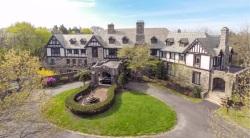
We are all aware that our gifted children are quite unique in their strengths, interests, and abilities. There are some commonalities, however, which are typically found in those who are considered gifted.
The following are some of the more static traits which gifted children tend to possess. You may find that your own child has several – or maybe even all – of these tendencies.
Gifted Children Learn Quickly
One of the first aspects which tends to identify a gifted child is the fact that he or she can pick up on topics very quickly. Your gifted daughter may be moving on to algebra while the rest of the class is working on multiplication tables. Your gifted son may be reading at third grade level by the time he enters kindergarten.
The mind of a gifted child is quite like a sponge, and information which he or she has been exposed to has a tendency to soak right in. The more information that a gifted child is exposed to, the more they will integrate into their overall understanding of the complexities of the world.
Gifted Children Can Self-Teach
Autodidact is a fancy term for people who have the ability to teach themselves complex topics. The concept extends beyond simply being able to read and retain information. It is a skill which allows the gifted person to intuitively understand the best way that she or he learns, along with approaching a topic from a detailed and encompassing lens.
A gifted child may use an inside-out approach to learning – or an outside-in – but the final result will be that such child will have a comprehensive grasp on topics which many would struggle to obtain, even after years of studying with a school. What this means for the gifted child is that a lifetime will often be spent in continual learning mode.
The world is a complex place, full of interconnected ideas, and the mind of a gifted child is likely to observe those connections without effort. The task for an autodidact is to piece those connections together, and often in a way that has not been exactly done, before.
Gifted Children Have Eccentricities
Gifted children will often have odd little habits. While some of these habits may simply be due to the way that your gifted child’s mind works, others may be attributed to the observed fact that gifted children often have sensory sensitivities.
Your gifted child may want to have the hem of his sock perfectly straight due to needing a sense of order, or he may need it straight due to the intolerable feeling of it being crooked in his shoe. Your task, as a parent, will be to accept the eccentricities which are not detrimental to your gifted child’s development, and gently steer them away from those which can become overly burdensome.
Gifted Children Experience Emotional Intensity
For gifted children, it seems to be the case that the level of brain processing power is matched by the level of emotional experiencing. Just as a concept can occur very quickly to a gifted child, an emotion can strike out of nowhere, and with similar intensity.
When these emotions are good, the gifted child can become adorably enthusiastic and bubbly while engaging in a favored activity, or over having learned something new. When the emotions are negative, the gifted child can be prone to throw tantrums; isolate; or even experience periods of depression. When it comes to managing emotions, it is true that the gifted child has the equivalent journey of taming a wild lion.
Fortunately, however, a gifted child’s propensity for cognitive reasoning and logic can work as an ally in the task. Gifted children are able to learn to apply reason in a way which tames the excessive emotion and places it into rational submission.
Gifted Children Are Compelled to Argue
Of all of the traits and tendencies of a gifted child, this one tends to produce the most stress for parents and teachers. Gifted children are prone toward being argumentative.
This behavior can come off as the child being all manners of unpleasant, such as being haughty; disrespectful; stubborn; or disobedient. For the gifted child, however, arguments are usually nothing more than a logical way to arrive at the core truth of a matter.
Assertions and demands which cannot stand up to the logical scrutiny of a gifted child are often considered frivolous, superfluous, and tedious. In these situations, their consideration is that their time and brain power can be much better utilized in ways other than what is being presented.
Other situations which invoke the tendency to argue can arise when the gifted child is certain that what is being stated is technically incorrect. In their gifted minds, it would be doing you a disservice to continue to allow you to proceed with such an error in hand.
Gifted Children Struggle With Social Skill
All of the aforementioned traits typically add up in a way which produces this final topic. Gifted children are often socially awkward. Being socially adept requires that a certain measure of learning be directed outward, and with a particular purpose in mind.
Children who are good at social interactions spend their energy on mastering human relations, and tend to view acceptance by the group as a reward. Gifted children are not often motivated by the same reward system.
This phenomenon may be partially due to the fact that a gifted child is already a minority. Their abilities work to isolate them from peers of their age group rather early.
And gifted children, like most people, tend to enjoy employing what comes naturally. It is easier for them to continue their solo journey of extensive academia than it is to put the brakes on it, and to do so for the purpose of social inclusion may seem like a waste of time.
Also, as friendships are often based on common interests, the gifted child may simply be at a loss when it comes to relating to those around.






